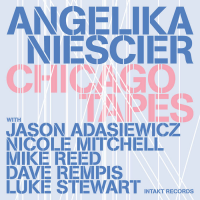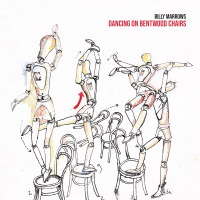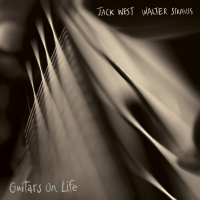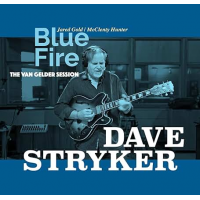Home » Jazz Articles » Album Review » David "Fathead" Newman: It's Mister Fathead
David "Fathead" Newman: It's Mister Fathead
Fathead is a classic 1958 sextet session featuring Ray Charles in a rare sideman role on piano with Hank Crawford on baritone sax and Marcus Belgrave on trumpet. It's one of those Ray Charles sets jazz listeners can easily admire. The group has a big band quality to it, and seems very much like a cohesive whole rather than a leader with a backup band. All solo meaningfully, invigorating a few standards, four Hank Crawford originals and two Newman numbers he still plays today ("Hard Times" and "Fathead," a.k.a. "Shana").
Straight Ahead, a winning quartet session from 1960, features Wynton Kelly on piano, Paul Chambers on bass and Charlie Persip on drums. This sparkling quartet gels together perfectly, tackling four excellent Newman originals and two well-arranged standards. Newman's tenor (and, for, "Night of Nisan," his distinctive flute) confidently fills those wide open spaces and the rhythm section brews a spicy, soulful stew.
The 1961 album, Fathead Comes On, returns Newman to his familiar Ray Charles bandmates, but in smaller groups. Here, Newman's own brand of soul becomes much more apparent. The jazz is solid and Newman swings hard on tenor, alto and, on the excellent "Unchain My Heart," flute. But his own soulful groove has become much more distinct at this point. Four of these seven tracks are Newman originals, and are the best of the bunch. Newman played with Ray Charles through 1964, but didn't record on his own again until 1967's House of David. Newman is heard here in an organ quartet, an ideal situation for his brawny, heartfelt tenor. Kossie Gardner isn't a memorable accompanist on organ, but the juke-joint thing works well for Newman. "Little Sister," "House of David" and "Miss Minnie" offer classic groove and this writer's always had a soft spot for Newman's lullaby-like reading of Dylan's "Just Like A Woman." Wish Newman recorded in more organ groups. It's Mister Fathead is an exceptional collection of first-rate swinging, soulful jazz by an unfortunately underrated talent. Kudos to Joel Dorn and 32 Jazz for returning it to circulation, enhancing the original sound and wrapping it all up in a well-designed, full-color package with original cover art and notes. A very welcome reissue.
Tracks:Hard Times; Weird Beard; Willow Weep For Me; Bill For Bennie; Sweet eyes; Fathead; Mean To Me; Tin Tin Deo; Batista's Groove; Skylark; Night of Nisan; Cousin Slim; Summertime; Unchain My Heart; Cellar Groove; Alto Sauce; Hello There; Sc ufflin'; Esther's Melody; Lady Day; I Wish You Love; One Room Paradise; Little Sister; Miss Minnie; Just Like A Woman; House of David; Blue New; The Holy Land.
Personnel
David "Fathead" Newman
saxophone, tenorDavid "Fathead" Newman: alto and tenor sax, flute; Bennie (Hank) Crawford: baritone sax; Marcus Belgrave: trumpet; Ray Charles, Wynton Kelly, Norris Austin: piano; Kossie Gardner: organ; Ted Dunbar: guitar; Edgar Willis, Paul Chambers, Jimmy Jefferson: bass; Milton Turner, Charlie Persip, Bruno Carr: drums.
Album information
Title: It's Mister Fathead | Year Released: 1998 | Record Label: 32 Records
Tags
PREVIOUS / NEXT
Support All About Jazz
 All About Jazz has been a pillar of jazz since 1995, championing it as an art form and, more importantly, supporting the musicians who make it. Our enduring commitment has made "AAJ" one of the most culturally important websites of its kind, read by hundreds of thousands of fans, musicians and industry figures every month.
All About Jazz has been a pillar of jazz since 1995, championing it as an art form and, more importantly, supporting the musicians who make it. Our enduring commitment has made "AAJ" one of the most culturally important websites of its kind, read by hundreds of thousands of fans, musicians and industry figures every month.























